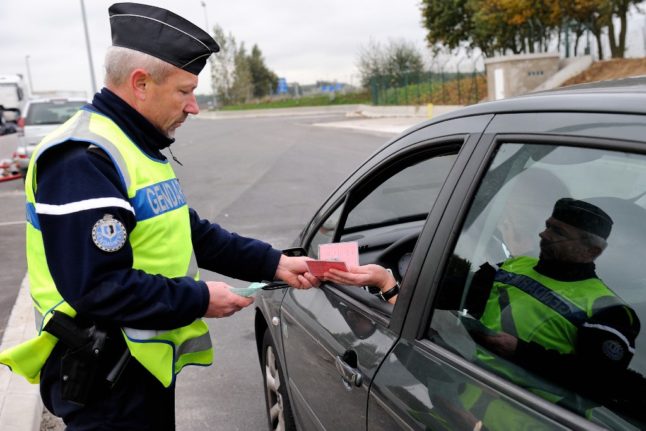This article is now out of date – find the latest announcements HERE and HERE
Subscribers to the British government's Brexit advice page alert system were sent an email on Wednesday advising them of changes to the information on driving.
On clicking on the link they were advised that UK citizens living in the EU must exchange their driving licences for one from the country they are living in.
Although this is true for some EU countries, it is not the case in France, where local authorities have been issuing very different advice.

The gov.uk site states: “You must exchange your UK driving licence for a local EU licence to drive legally in the country you live in. You should do this before 31 December 2020.
“Exchange your licence as early as you can because your application may take longer than usual to process.”
It then advises people to check local regulations in their country.
However, if readers then click through to the country page they discover what the real situation is in France.
French authorities have said that the majority of British people who are already resident in France, or who move here before the end of the transition period, will not need to exchange their licences, and can continue to drive on a British licence.
The exceptions to this are:
- The licence has been lost or stolen
- You have added a new driving category to your licence
- You are specifically instructed to exchange it by a gendarme (this usually happens if you have committed a driving offence)
- Your licence or photocard is due to expire within six months – anyone turning 70 must exchange their licence and the photocard licences need renewing every 10 years for most categories.
If you need to renew your licence for any of the above reasons you cannot do it in the UK, as you will need a UK address and have to make a declaration that this is your full time address. If you actually live in France this would obviously be a false declaration, which is a criminal offence in itself.
Those people – and only those people – need to send their licence to CERT to be exchanged for a French one.
Authorities now say that the wait time for new applications which fit one of the above criteria is 3-4 months.
French authorities have been swamped with applications from thousands of British people in France after UK authorities advised after the referendum that all licences would need to be exchanged.
The situation has created a massive backlog of applications with some people waiting more than a year.
In an interview with The Local on Tuesday, Baptiste Mandard, Deputy General of the Centre d'Expertises et des Ressources des Titres – Echange des Permis Étrangers (CERT) in Nantes which deals with all applications from outside Paris reiterated that for most people there is no need to exchange their licence.
He said: “Come to us either if you have lost points on your licence, if your licence is about to expire or if you have added a qualification on your licence.
“Otherwise you do not need a French driving licence. We have a full year of dealing what happens after December 31st, so there is no need to apply for an exchange now.
“Right now we just really would like to reassure your readers: you can still use your British driving licence after January 31st.”
He added that the service has plans to launch an online platform 'within the next six months' to make the exchange process easier.
Read the full interview with Baptiste Mandard here.
Kim Cranstoun, who runs the Facebook group Applying for a French Driving Licence said: “People should make sure that they select France on the gov.uk page and read the criteria for living and driving in France.”
For more information about the situation around driving licences or driving in France, head to our Preparing for Brexit section. People on Facebook can also get help and support from the group Applying for a French Driving Licence.




 Please whitelist us to continue reading.
Please whitelist us to continue reading.
“The situation has created a massive backlog of applications with some people waiting more than a year.”
This is vague at best.
Which part takes more than a year?